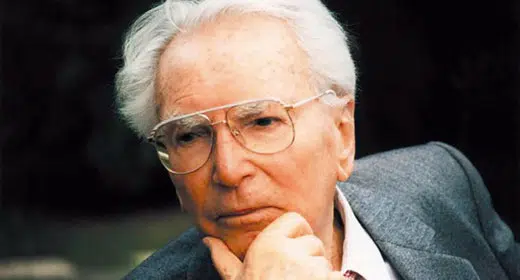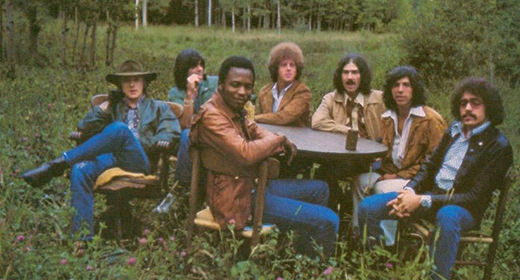by Marianne Williamson: “The greatest threat to our planet is the belief that someone else will save it.” —Sir Robert Swan
Every problem can be traced to a lack of devotion to things that matter most, and nowhere is this truer than in our relationship to the earth. Humanity’s spiritual disconnection from nature is at the heart of our climate crisis, and reminding ourselves of our moral responsibility to respect and protect the earth will resolve it.
In this as in so many areas, unwise action has led to the problem and taking wise action now will solve it.
There is a growing consensus in America that climate change is an existential emergency. As President, I would argue, in no uncertain terms, that rapid, man-made climate change and global warming represents a clear and present danger to our people, to our democracy, and to the world at large.
Beginning with the appointment of a world-class environmentalist rather than a fossil fuel or chemical company executive (as is now the case) to lead the Environmental Protection Agency, I would fundamentally reverse the current misuse of the EPA, whereby it serves mainly the cause of profit maximization for fossil fuel and chemical companies, and return it to its original mission of protection and advocacy on behalf of our natural environment. The full powers of the executive branch of the US government would be put in service to this effort.
As president, I would immediately re-enter the Paris Climate Accords — while simultaneously working to expand talks to push for even more meaningful and enforceable agreements. In 2015, we were one of 195 countries to support this important agreement on Climate Change. We should not only re-enter, but also lead a new push for the global transition to reduce and even sequester existing carbon from the atmosphere. Our urgent goal is not just to hold temperature increases as close as possible to where they are now, but instead to reverse global warming back to more long-term sustainable levels. The current Paris Accords don’t go far enough, they may help stem off the worst of the worst consequences, but what we need to be aiming for is to restore health. We must put our full efforts behind continuing a global push to come into alignment on more robust goals and make the agreements enforceable, which they are currently not.
The United States and world must take unprecedented action between now and 2030 to actually bring the carbon we put in the atmosphere back into the earth where it came from—to reforest, transform our dirt back to soil on our farms, restore wetlands, peatlands, and increase phytoplankton and fisheries—among other critical measures.
The recent Intergovernmental Panel on Climate Change (IPCC) report, and the 4th US National Climate Assessment describe the dire consequences of failing to act to protect our population, our economy, and our world from climate change.
We are already seeing refugees fleeing extreme weather disasters, causing human calamities, unrest, and conflict. However, these reports simultaneously underscore the enormous opportunities for this nation if we lead in developing and adopting innovations.
Most of the debate right now focuses on keeping temperature rises to around 1.5C or 2C, but that is not sustainable, we actually need to reverse warming trends. While shifting away from fossil fuels towards cleaner energy sources gets the bulk of our attention in this area—there are numerous approaches we must take, in multiple sectors, to address climate change. Other critical areas include: reducing food waste, promoting a plant rich diet, protecting tropical forest, proper land management, regenerative agriculture and refrigerant management, among others. Even seemingly unrelated issues like educating women globally and family planning are known to be an important part of the solution.
Under a Williamson administration, we will take a full systems approach, helping to reverse global warming and lead the planet towards long-term sustainability.
Energy
Transforming our energy sector is of course a critical component. America must step up and be the leader in the clean energy transition, not only to save our planet but to economically revitalize our country.
Our continued reliance on fossil fuels – coal, oil and natural gas – is holding back a new, clean energy revolution that will benefit our economy, environment, and collective public health.
Furthermore, fossil fuel companies not only pollute our air and water, damage our health and accelerate global warming, they have also polluted our political system for far too long. As the result of energy industry lobbying and campaign contributions, the federal government supports the use of fossil fuels and hands out massive tax breaks and subsidies to companies that are already among the most profitable in the world. U.S. fossil fuel producing companies rake in hundreds of billions in revenue every year, with huge profit margins, yet the U.S. ranks the worst of all G7 countries by subsidizing fossil fuels the most—over $26-billion a year.
Corruption, both legalized and unvarnished, makes it extremely difficult to take on the power of the energy-producing giants. Until we deal with the issue of money’s powerful influence on our political system, none of this will truly change, which is why campaign finance reform is a central tenet to my governing philosophy.
SPECIFIC PROPOSALS:
A Green New Deal would provide an overall strategy for how clean energy, sustainable infrastructure and transportation, and a national green jobs program can revitalize our economy and utilize our innovative and human capacity to benefit all our people. While it doesn’t cover the whole range of measures we must undertake to reverse global warming, it is an important step, therefore I support it.
When it comes to energy, we must:
- Expand investments in clean, green energy.
- Mirror ambitious, but realistic, efforts in the State of California. This Nation needs to set a goal to transition to cleaner energy as quickly as possible. This will send a message to the US market, large businesses, and utilities.
- Reinstate and expand energy and mileage efficiency investments. Conserving energy and making the most of our resources should not be a partisan issue. It is good for everyone. Our scientists and businesses are ready to help lead these efforts, but strong national leadership is essential.
- Extend federal incentives and rebates for renewable energy.
- Transition away from fossil fuel energy and halt all new fossil fuel projects.
- Restart the Clean Power Plan to protect our health and clean air, while moving away from coal, which is costly, harmful to the air we breathe and to the land and water where it is mined and burned.
- Put a moratorium on all new fracking operations (oil and gas) while we study the best way to transition away from and phase out these hazardous and extreme extraction techniques. This will require planning for the workers and communities that will be most impacted by a transition away from fossil fuel extraction, processing and use called a “just transition.”
- Transition away from the domestic use of nuclear energy. We do not need nuclear energy to fulfill our energy needs.
- Address emissions caused by huge agribusinesses. Massive factory farms not only threaten and destroy the livelihoods of family farmers, but they are the largest producer of the most dangerous greenhouse gasses — methane and nitrous oxide. Research suggests that even if we eliminate all fossil fuel use, we will still exceed our atmosphere’s ability to repair itself due to large agribusiness practices. We must break up these conglomerates, return farming to families instead of factories, and explore every means possible of reducing the impact of animal agriculture on our environment.
When it comes to transportation, we need to:
- Accelerate the production of Electric Vehicles, invest in charging infrastructure, and continue efforts to maximize fuel efficiency until we can move away from internal combustion engines.
- Deploy federal transportation funds to fully fund public transit, walkable and bikeable communities, and rebuild our national rail lines and our cities’ public mass transit systems.
When it comes to an economics of recarbonizing the Earth:
Transitioning to an economy that keeps its focus squarely on reducing carbon emissions is not only one of the great moral challenges of our time, but it can also open a new era of US innovation based on sustainable infrastructure, responsible resource management and meeting human needs. We need to explore every option to get there. This includes putting a price on carbon to send a sustained market signal and pay for the external damage done by these fuels. Many progressives and environmentalists feel that carbon fees should be mandatory (not market-based) and dedicated to achieving further reductions emissions to drive them down faster AND to protect lower income and people of color who have the least protection against climate impacts. My Administration would be open to all these ideas.
It is also critically important that our economy works to sequester excess carbon currently in the atmosphere, back down into the earth. We will employ every resource to restore our forests and oceans, and promote sustainable agricultural and ranching practices, among many other critical measures. We cannot afford to do anything less.
When it comes to climate justice and preparation:
Unfortunately, the climate crisis is happening NOW. Even while we are doing all we can to stop further damage to our planet, we must simultaneously enhance our resilience to the current effects of extreme weather and hotter temperatures. Those with lower income, people of color, indigenous communities, and other vulnerable populations must be prioritized. Climate preparedness must be fully integrated into the nation’s emergency preparedness, and into our health plans, infrastructure plans, and homeland security plans.
When it comes to national security, we must:
End our reliance on oil, because it perpetuates our dependence on energy supplies from other countries, particularly in the Middle East. This constantly draws us into military misadventures to defend access to oil (and the profits it yields for big oil companies), usually under the pretense of, “defending our freedoms.”
The truth is, we can save much of the oil we use through improved efficiency and get the other half from renewable energy sources. This will save, potentially, trillions of dollars from being wasted on foreign wars.
Making this fundamental change in how we, as a nation, use energy is not something that any one set of legislative actions can manage; rather, this shift will take a change in how all of us—not only the government but also individuals—treat the earth on which we live. The problem of environmental desecration is rooted, in essence, in a lack of reverence for the home we all share.
In all these and more areas, a Williamson administration will make climate change and global warming an urgent and top priority.










































